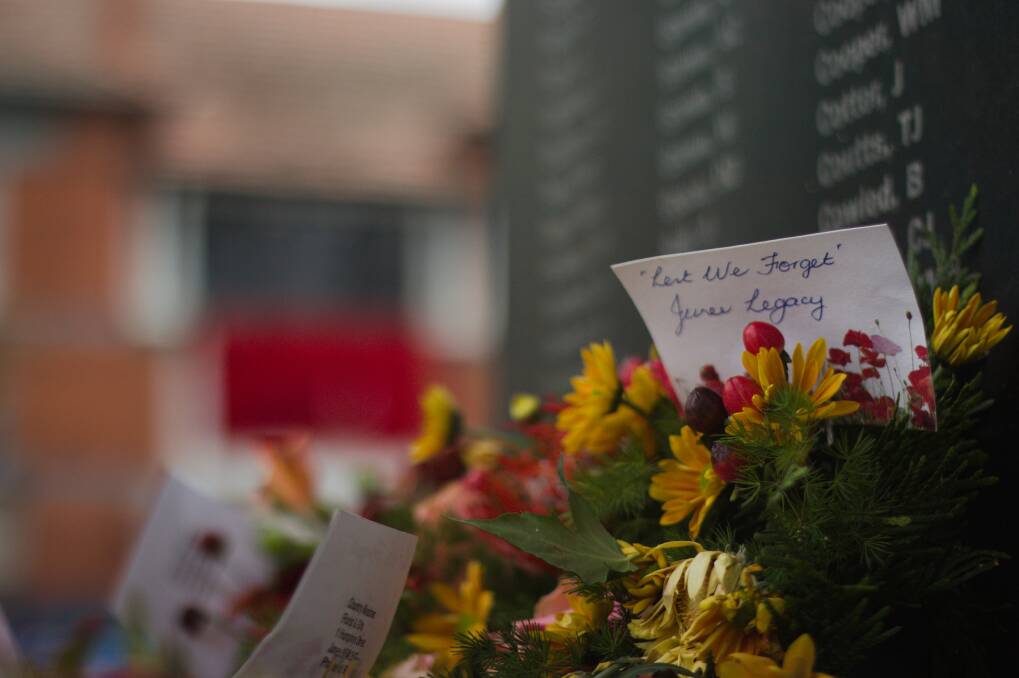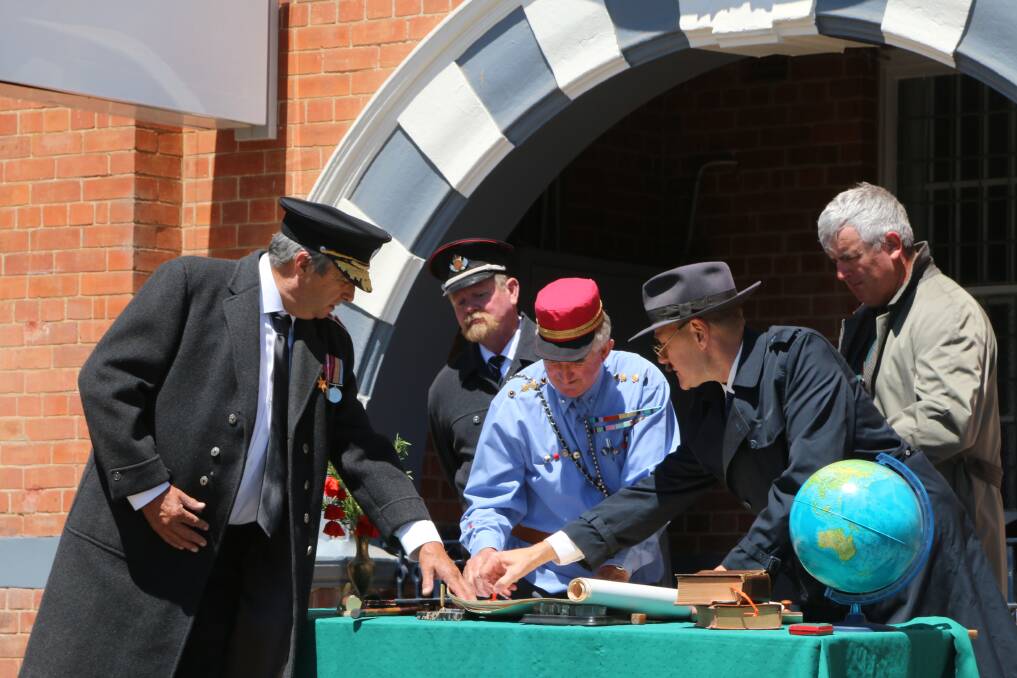
History walked on Broadway Street last Sunday.
Subscribe now for unlimited access.
or signup to continue reading
To commemorate the centenary since the armistice was signed ending the First World War, Junee’s drama troupe stage a re-enactment.
The half-hour performance was scripted by deputy mayor Matt Austin and featured performances from fellow councillor Bob Callow and mayor Neil Smith.
“When I was approached by the local RSL sub-branch and asked to write a script for the armistice signing, I thought it’d be better to start further back, to really capture why that moment was so incredibly exciting,” said Mr Austin.

The performance detailed the four years of war.
Beginning with the expectation that it was to be ‘over by Christmas’, and leading through the disillusionment and loss of more than 62,000 soldiers across the nation.
Related:
“I wanted to emphasize how weary people became over the four years, as they realised how long the war was dragging on.
“In doing the research, I picked up some things I had forgotten. Like the false celebration that happened a few days before the armistice was signed.
“That was caused by a misunderstanding. A local ceasefire was called, but it was only temporary. In reality, we know fighting continued until the very minutes before the signing.”
During the writing process, more personal realisations were also called to his mind.
Known to him only as ‘Titch’, Mr Austin’s great-grandfather was a veteran of the Western Front.
Owing to his small stature, he was only permitted to join the war effort in 1917, when a lack of resources forced height restrictions to be abandoned.
“He was actually gassed in a German attack and had to spend six months in hospital in England before he was well enough to return to Australia.
“Then he lived permanently incapacitated, for 50 years he coughed atrociously,” said Mr Austin.
“I was very fortunate to live in a household that revered their service, so when I wrote the script I wanted to highlight the anxiety and fear for those who were left behind.
“With little way to communicate, they didn’t know if they would see their loved ones again.”
Sunday’s re-enactment formed part of the seven-hour Remembrance Day commemoration.
More than 300 people attended the morning’s official ceremony.
Organised in part by John McLaren who unfortunately missed the proceedings owing to his heart surgery earlier in the week.
“Every aspect of the day re-iterated what our diggers had gone through and really brought back to our memories what life would have been like living through the Great War,” said co-organiser Nicholas Pyers.


